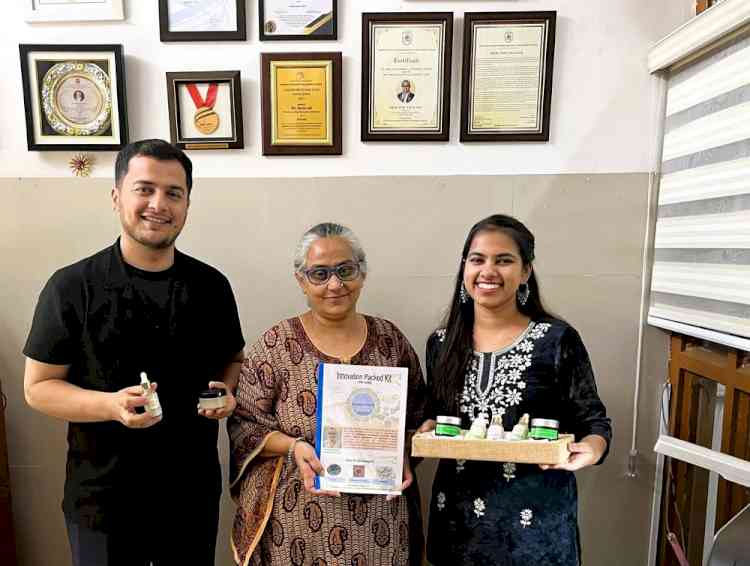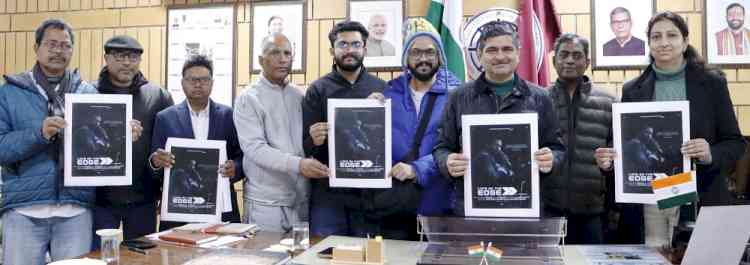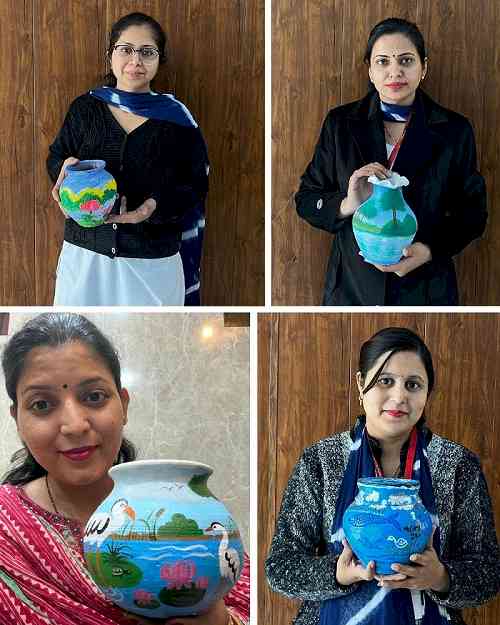Panjab University Files Indian & Global Patents for Green Nanoplatform with Skincare, Pharma, and Wellness Potential
Prof. Indu Pal Kaur’s Solvent-Free Innovation Sets Benchmark in Clean Science and Industry Collaboration

Chandigarh, 17 May 2025: Panjab University has filed both Indian and international (PCT) patent applications for a pioneering green nanomicelle platform developed by Professor Indu Pal Kaur and her PhD scholars, Bakr Ahmed and Simrandeep Kaur. The eco-friendly, solvent-free platform is scalable and enables the safe, targeted delivery of sensitive bioactives such as peptides, herbal extracts, cannabinoids, vitamins, proteins, and small molecules—each known for their therapeutic, regenerative, anti-inflammatory, or immune-supporting benefits across health and wellness applications.
The innovation holds broad potential across pharmaceuticals, nutraceuticals, cosmetics, paediatrics, veterinary care, and wellness industries. Notably, the university has already transferred the technology for the skincare and cosmetics segment to an industrial partner—marking a significant milestone in academia-industry collaboration and real-world product development.
A hallmark of this breakthrough is its “Simplicity meets Versatility” design: the formulations are developed at room temperature using clean-label processes. Where required, minimal quantities of USFDA-permitted solvents can also be used to incorporate poorly soluble actives—offering added flexibility without compromising on safety or scalability.
Professor Indu Pal Kaur, referred to as the “Patent Queen of India,” leads the IPK Lab—short for “Innovation Packed Kit Lab”—which is built around the philosophy of “Innovation to Reality.” The lab’s work aligns closely with India’s ‘Make in India’ vision, promoting homegrown, globally competitive technologies that empower both MSMEs and multinational corporations.
“Our nanoplatform is built for affordability, adaptability, and clean science. It supports MSMEs and global players alike in developing safe, effective, and sustainable products,” said Prof. Kaur.
With over 22 granted and 17 filed patents to her credit, Prof. Kaur’s contributions underscore the expanding role of intellectual property in shaping India’s innovation-led economy.
The IPK Lab fosters a culture of scientific rigour and entrepreneurial problem-solving. “I never shy away from late evening discussions or sleepless nights searching for a solution. The journey from a research obstacle to a societal solution is where my lab thrives,” Prof. Kaur shared.
She added that working with industry is not just about licensing innovations but about “co-creating impact” and building deeper, long-term partnerships rooted in technology transfer and mutual growth.
Prof. Kaur credited the progressive ecosystem at Panjab University for fostering an enabling environment where researchers can seamlessly engage with industry. She highlighted the visionary move by university leadership in 1996 to establish the Centre for Industry-Institute Partnership Programme (CIIPP), which introduced a revenue-sharing model between the university and faculty—an early and forward-thinking step that continues to empower innovation and collaboration.
Prof. Renu Vig, Vice Chancellor, Panjab University, said:“I am happy to note that faculty members are translating laboratory research into innovations that serve industry and society. Such work not only enhances our academic standing but also leads to the development of affordable, high-quality products that improve lives. I congratulate all our researchers who are advancing the university’s mission through patents, technology transfers, and industry engagement.”


 City Air News
City Air News 










